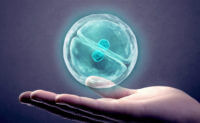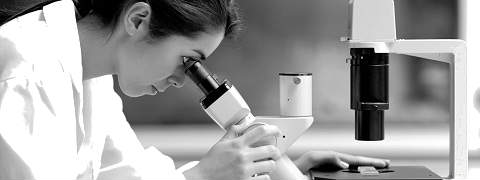自闭症干细胞疗法: 探索新的治疗途径
干细胞疗法已成为治疗自闭症的一个有前景的前沿领域, 一种复杂的神经发育障碍,其特征是社交, 沟通, 和行为挑战. 本文探讨了干细胞解决自闭症潜在病理生理学的潜力并提供新的治疗方法.
了解自闭症的病理生理学和干细胞潜力
自闭症是一种高度异质性的疾病,其病因复杂,涉及遗传因素。, 环境的, 和免疫因素. 干细胞疗法旨在针对自闭症病理生理学中涉及的特定细胞和分子机制, 比如神经炎症, 突触功能障碍, 和神经回路异常.
干细胞在自闭症管理中的治疗应用
干细胞具有分化成各种细胞类型的卓越能力, 包括神经元, 星形胶质细胞, 和少突胶质细胞. 通过将干细胞引入大脑, 研究人员希望促进神经发生, 减少炎症, 并恢复自闭症患者的正常大脑功能.
用于自闭症治疗的干细胞类型
各种类型的干细胞已被探索用于治疗自闭症, 每一种都具有独特的性能和应用. 其中包括间充质干细胞, 骨髓干细胞, 脐带血干细胞, 和诱导多能干细胞.
间充质干细胞: 性能和应用
间充质干细胞是源自多种组织的多能干细胞, 包括脂肪组织和骨髓. 它们具有免疫调节和神经保护特性, 使它们成为治疗自闭症相关炎症和神经损伤的有希望的候选者.
骨髓干细胞: 功效与挑战
骨髓干细胞已用于自闭症临床试验, 表现出社交和行为症状的改善. 然而, 优化干细胞输送和最大程度降低免疫排斥风险仍面临挑战.
脐带血干细胞: 道德考虑和承诺
脐带血干细胞是从废弃的脐带中道德地获取的,具有降低免疫原性等优点. 他们在自闭症临床前研究中表现出了希望, 但还需要进一步研究来确定其临床疗效.
诱导多能干细胞: 自闭症研究进展
诱导多能干细胞 (诱导多能干细胞) 是经过重新编程的成体细胞,可以分化成体内的任何细胞类型. 它们为研究自闭症特异性患者来源的细胞和制定个性化治疗策略提供了强大的工具.
自闭症干细胞疗法的临床前研究
自闭症动物模型的临床前研究证明了干细胞疗法改善社会行为的潜力, 减少重复行为, 并增强认知功能. 这些发现为进一步的临床研究提供了强有力的理由.
临床试验: 评估干细胞的安全性和有效性
临床试验正在进行中,以评估干细胞疗法治疗自闭症的安全性和有效性. 早期结果令人鼓舞, 但需要更大规模、更严格的研究来确认这些干预措施的长期益处和风险.
自闭症干细胞研究的未来方向
未来的研究将集中于优化干细胞输送方法, 确定最有效的细胞类型和剂量, 并探索与其他干预措施的联合疗法. 此外, 正在进行的研究将调查干细胞治疗特定自闭症亚型和解决共病的潜力.
干细胞治疗的伦理影响和监管监督
干细胞治疗 自闭症引起了对人类胚胎干细胞的使用以及滥用或利用的可能性的伦理担忧. 强有力的监管对于确保干细胞研究和临床试验的安全和道德行为至关重要.
干细胞疗法有望彻底改变自闭症的治疗. 通过利用干细胞的再生潜力, 研究人员旨在解决这种复杂疾病的潜在病理生理学问题,并提供新的治疗选择,以改善自闭症患者及其家人的生活.




